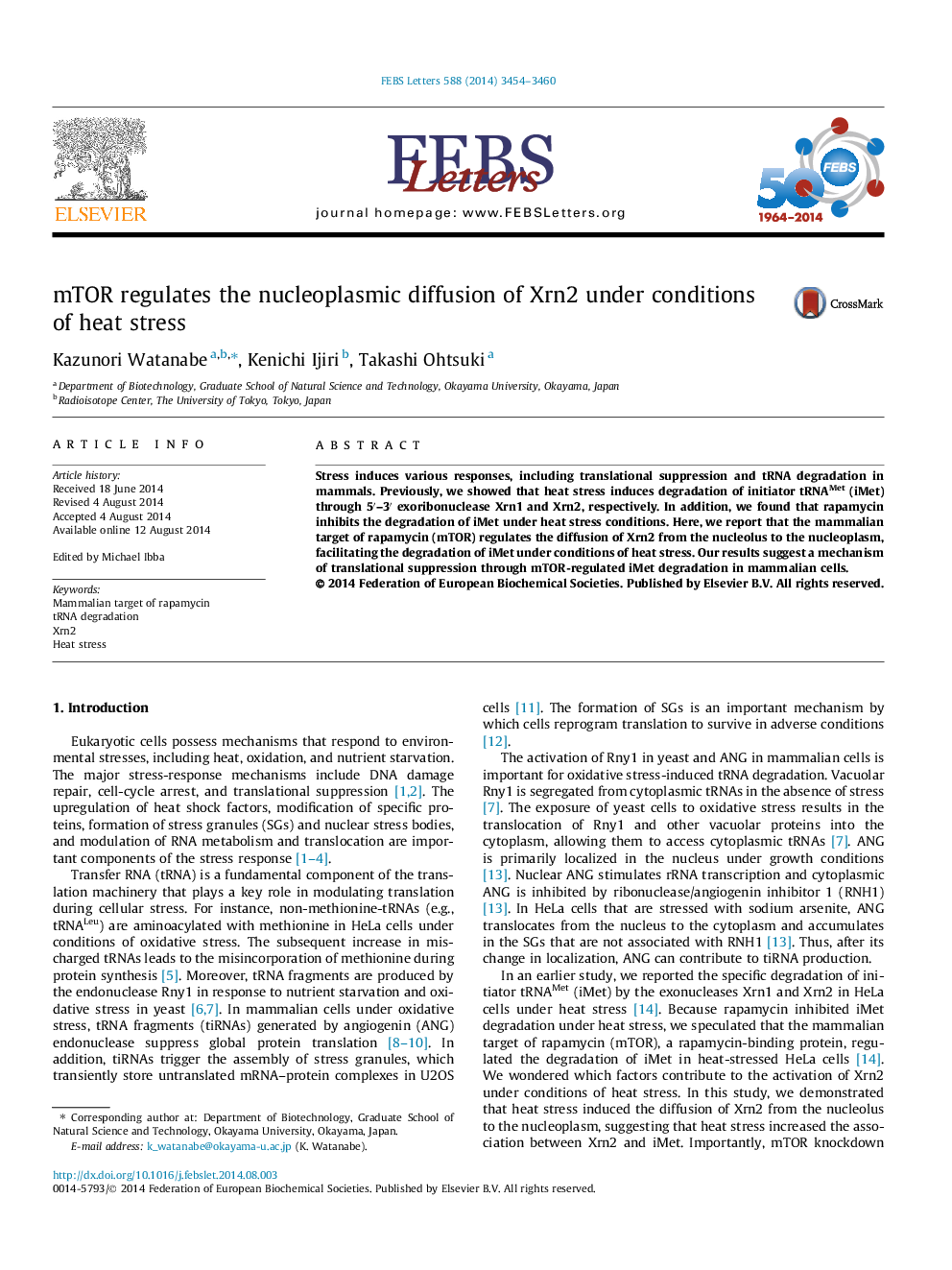| Article ID | Journal | Published Year | Pages | File Type |
|---|---|---|---|---|
| 10870424 | FEBS Letters | 2014 | 7 Pages |
Abstract
Stress induces various responses, including translational suppression and tRNA degradation in mammals. Previously, we showed that heat stress induces degradation of initiator tRNAMet (iMet) through 5â²-3â² exoribonuclease Xrn1 and Xrn2, respectively. In addition, we found that rapamycin inhibits the degradation of iMet under heat stress conditions. Here, we report that the mammalian target of rapamycin (mTOR) regulates the diffusion of Xrn2 from the nucleolus to the nucleoplasm, facilitating the degradation of iMet under conditions of heat stress. Our results suggest a mechanism of translational suppression through mTOR-regulated iMet degradation in mammalian cells.
Related Topics
Life Sciences
Agricultural and Biological Sciences
Plant Science
Authors
Kazunori Watanabe, Kenichi Ijiri, Takashi Ohtsuki,
